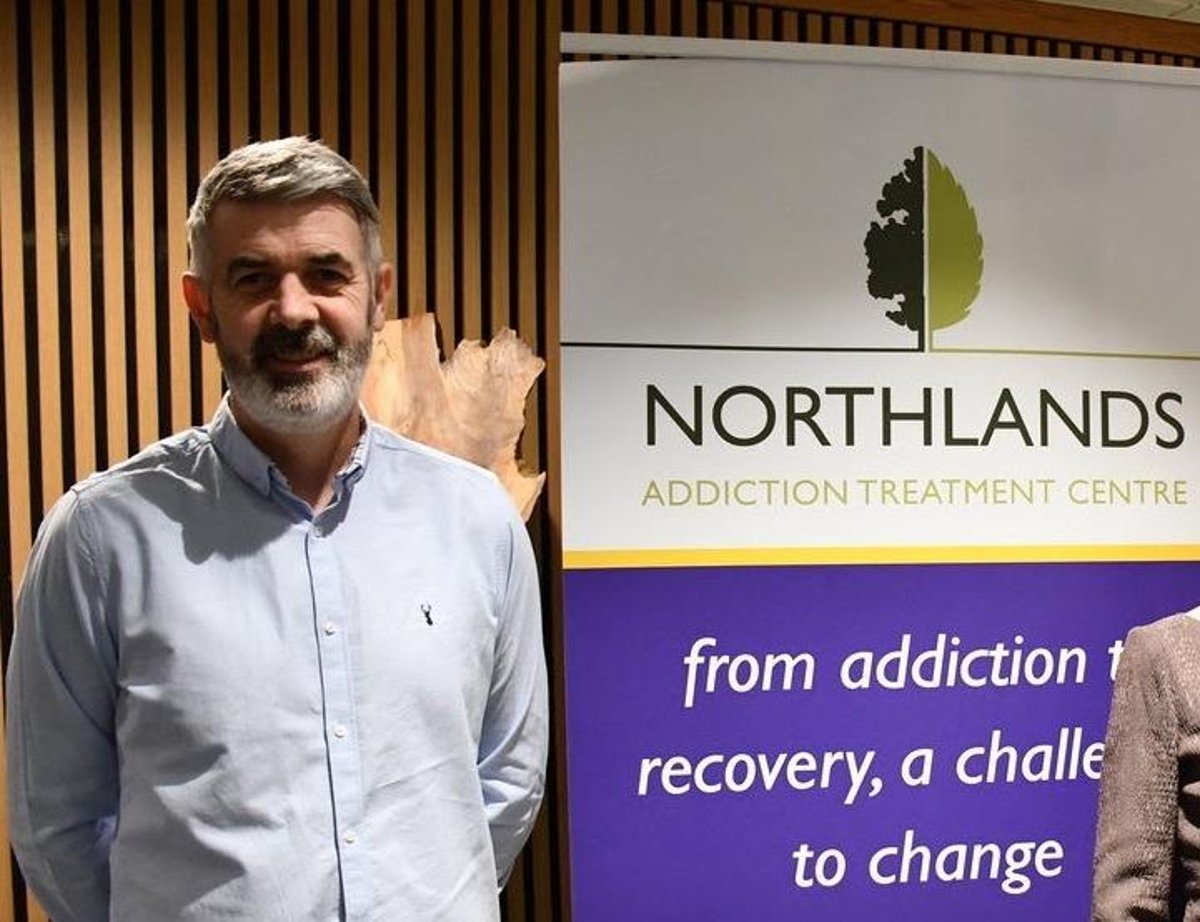Addiction services the ‘Cinderella of health service’ as outpatient demand at Derry’s Northlands soars 300%
By Andy Balfour & Brendan McDaid
Copyright derryjournal

At a meeting with Derry City and Strabane District Council’s Environment and Regeneration Committee, Mr Canning described Northlands – which had its funding cut in April – as a “regional service”, as it provides services for people from all Trust areas despite only receiving funding from the Northern and Western Trusts. He also noted that, as a result of the increased demand, waiting times for a first appointment has increased from two to eight weeks. “Our non -residential treatment is essentially is outpatient counselling, and at the minute we are seeing an incredible increase in the amount of people looking to access our service,” he said. “We have something in the region of a 300 percent increase, over the last 12 to 18 months, of people contacting the centre looking for help, either for themselves or for family members. “The knock -on effect of that is that, with the small workforce that we have, the waiting list [for a first appointment] is growing. “There was a time not long ago, where we started to get itchy feet if somebody had to wait more than two weeks for an assessment. “As of today anybody that phones Northlands is waiting up to eight weeks to be offered an appointment, which upsets us. “When someone decides that they need help, to have to tell them on the phone that it’ll be up to eight weeks before you see before you see someone is an indictment of the situation that we’re in.” As well as family support, education, and after-care services, Northlands also provides a six-week residential treatment programme, which can accommodate up to eight beds at a time. Mr Canning warned that demand for residential services had also increased, with 67 people availing of the programme in 2024. “That’s the highest that it’s been in maybe two decades, in terms of the amount of people that are coming through,” he said. “If we had had more beds we could have had more people in, there’s no doubt about that. “The only portion that is funded through the Department of Health (DoH) is the residential treatment. “So the up-to 700 people that we offer an assessment to annually, very little of that is funded. “The Northlands is meeting the cost of that themselves through the block funding or the Commission funding. “Aftercare is facilitated by volunteers, and any expenses are covered by Northlands, [so] people will talk to us about how important they are but they’re not prepared to put the money in to support those services.” Sinn Féin councillor Sandra Duffy said she was “shocked and surprised” by the funding cut in April. Councillor Duffy added: “If you’re waiting eight weeks rather than two weeks for even an assessment appointment, the impact that has on the person with the addiction is absolutely huge. Because sometimes in that cycle of addiction, the exact point that you get the person in is vital to how successful that journey is going to be. “So if they’re at a point they’re ready and they have to wait a further eight weeks, then that is going to set back that whole journey that causes us great concern.” Sinn Féin councillor Antaine Ó Fearghail said “society as a whole” was indebted to Northlands and other addiction services, due to the ongoing rise of drug addiction, while People Before Profit councillor Shaun Harkin said Northlands “saves lives and saves families”. Councillor Harkin said: “What you said today has left me more concerned about the future of Northlands. “The funding cut was very disappointing but I think that the response …demonstrated that people can see the fragility, the vulnerability of a lot of key services that people depend on here. “You said that it used to be a two-week week wait and now it’s an eight -week wait, what what does that mean in terms of the people who don’t get immediate access? How is that compounding the crisis that we’re facing and and what do we need to address that? Because if it’s eight weeks now, when is it going to be 12 weeks.” Mr Canning responded: “In the years that I’ve been working with Northlands it’s evident that addiction services are the Cinderella of the health service, of that I’m convinced. “The government will point to commitments here and commitments there, but it’s nowhere near touching the sides of what’s going on. “The reality… is that the problem is getting worse, and that’s evident in the increase of people dying from drug-related and alcohol-related deaths. That has increased year-on-year over the last decade and shows no sign of of reducing. “So you have that trend on the one hand and then in the other hand you have acute services like residential treatment services losing funding, and that in my head makes zero sense whatsoever. “When you decide that you need help or you want help, that window only remains open for a short period, so to be able to respond to addiction in a timely manner is crucial.” Earlier this year the Department of Health claimed it would ‘not be appropriate’ to reverse a decision to withdraw core grant support for Derry’s Northlands Centre this year, despite mounting anger across the north west. Back in 2022, the UK government in London pledged to commit £1m towards a new Northlands Centre of Excellence Addiction Treatment Centre, which was described by local representatives at the time as a “beacon of hope”. This funding however was contingent on Stormont health officials submitting a business case to the UK government. Earlier this year it was confirmed the business case was not submitted. When asked if it had been back in April, the DOH spokesperson responded: “It is the intention that the Substance Use Commissioning & Implementation Plan, launched in November last year, and the associated recommendations from the recent Independent Review of Tier 4 Detoxification & Residential Rehabilitation Services, will inform all future funding decisions around substance use related services, subject to additional funding being made available. “While analysis is still underway, early indications from the recent public consultation on the Tier 4 review, show a high response rate from the North West, and a strong agreement with all 20 recommendations. Alongside this, the recently published Western Needs Assessment Report, provides a comprehensive understanding of the specific challenges experienced within the WHSCT area relating to substance use. “It is important to note that the Tier 4 review does not recommend that a new dedicated Treatment and Recovery Centre is developed in the North West, but instead that joined up working is improved and that better pathways are developed between existing services across the region, including the North West. “Such services include: Community Detoxification Services, Community Addiction Teams, Community Mental Health Teams, early intervention and prevention services and Primary care, In-Patient Detoxification services and Residential Rehabilitation.” “Each of these pieces of work will be used to inform proposals for the potential commitment from the UK Government in Annex A of New Decade, New Approach.” Andrew Balfour, Local Democracy Reporter.



